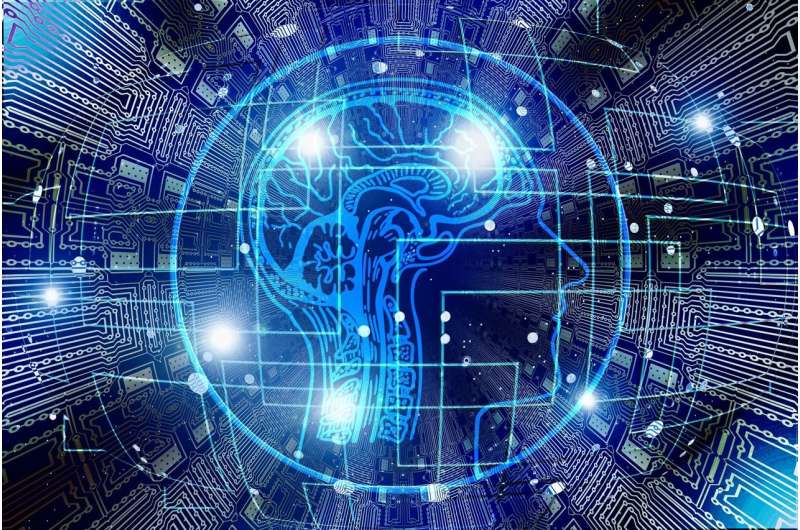This article has been reviewed according to Science X's editorial process and policies. Editors have highlighted the following attributes while ensuring the content's credibility:
fact-checked
peer-reviewed publication
proofread
Computational modeling sheds light on human cognition and the origins of brain disorders

Researchers from the National Institutes of Health (NIH) used computational modeling to uncover mutations in the human genome that likely influenced the evolution of human cognition. This groundbreaking research in human genomics could lead to a better understanding of human health and the discovery of novel treatments for complex brain disorders. The study is published in Science Advances.
Human cognition is a defining feature of human evolution, setting us apart from other primates. Despite over 100 million mutations since the human-chimp split, only a small fraction has been found to be significant. To navigate this vast landscape of genomic changes, researchers from the National Library of Medicine (NLM) and the National Cancer Institute (NCI) created an artificial intelligence (AI) model of gene regulation in the human brain. The model identified thousands of mutations likely impacting neocortical development and facilitating the acquisition of mathematical abilities through altered brain gene regulation mechanisms.
When the human genome was sequenced in 2001, researchers learned that only 2% of the sequence of our genome is used for coding genes that, in turn, translate into proteins. This is the sequence information that is being used by every single cell. The function of the other 98% of our DNA—often referred to as "noncoding DNA"— remains relatively unknown. It is believed that 95% of disease associations hide within these noncoding parts of our genome.
The research group of Ivan Ovcharenko, Ph.D., senior investigator in the Computational Biology Branch of NLM's Intramural Research Program teamed up with the research group of Sridhar Hannenhalli, Ph.D., senior investigator in NCI's Center for Cancer Research to create an AI model that measures the effect of noncoding genome mutations on human brain function and development. This led to the identification of a group of noncoding mutations disrupting brain regulatory pathways and potentially causing various complex brain disorders, including autism.
"There are treasure islands within the sea of noncoding DNA in the human genome that are critically important for regulating human genes," said Dr. Ovcharenko. "Mutations in these regions are largely benign, but there is a class of mutations which detrimentally impact the function of regulatory regions in the brain and affect cellular activity there. By being able to address the impact of individual mutations, we are advancing towards understanding the mechanism of complex diseases and disorders and paving the way for the development of novel therapeutic approaches."
According to study authors, this fundamental work in human genomics is likely to have a long-ranging impact on human health and advance the research of the complex nature of the human brain.
More information: Shan Li et al, De novo human brain enhancers created by single-nucleotide mutations, Science Advances (2023). DOI: 10.1126/sciadv.add2911. www.science.org/doi/10.1126/sciadv.add2911


















